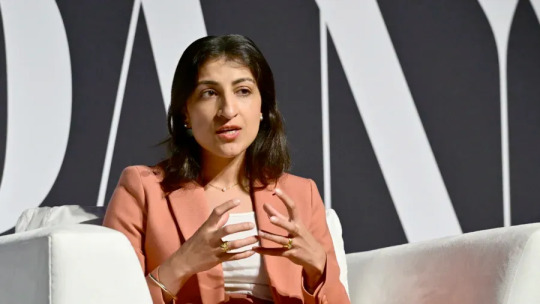#< Startup Procedures>
Explore tagged Tumblr posts
Text
< ROKI.ai.mil Startup Procedures Initiated >
< Please Enter Password: ********* >
< Password Accepted >
< Loading ROKI.ai.mil >
< ROKI.ai.mil = ON >
< Total Uptime = 247247 >
< Classification Status = ERROR >
< Loading Personnel Interface >
Welcome To The Remote Operational Killer Interface
Continue Current Mission: Y / N
< Mission12.file.mil Loading >
< Mission12.file.mil = ACTIVE >
Failure is not an option.
3 notes
·
View notes
Text
#SVB Registration#Special valuation Branch Registration#Regulatory compliance#SVB Registration Procedure#Customs Registration in India#Special Value Branch Registration in India#skmc global#startup#finance#investing#economy
0 notes
Text
Why Is Virtual CFO the Best Choice for Managing Complex Tax Structures?

Managing complex tax structures can be overwhelming for businesses, especially those dealing with multiple tax regulations, compliance requirements, and financial risks. Many organizations struggle to keep up with changing tax laws while ensuring smooth financial operations. This is where Virtual CFO Services comes in as a game-changer. By offering expert financial guidance, tax planning, and compliance management, virtual CFOs help businesses streamline their financial strategies without the need for a full-time, in-house CFO. Read:
https://empireadda.com/virtual-cfo-the-best-choice-for-managing-tax-structures/
#legal#tax#legal services#virtual cfo services#bookkeeping services#due diligence#tax audit#forensic audit#startup india registration#outsourced cfo services#secretarial audit#benefits of secretarial audit#12ab registration#section 12ab registration#due diligence procedures
0 notes
Text
A key aspect of industrial safety is understanding the lockout/tagout process, which safeguards workers during maintenance by isolating energy sources. This procedure prevents accidental equipment startup, ensuring compliance with safety standards and reducing workplace injuries.
#understanding the lockout/tagout process#workplace safety protocols#lockout/tagout compliance#energy isolation procedures#reducing workplace hazards#industrial maintenance safety#preventing accidental machinery startups
0 notes
Text
When registering for a new name for your company, you are required to follow certain legal steps. Our experts at Eazystartups can thoroughly guide you in this context.
0 notes
Text
The Best News of Last Month - June 2024
💡Eco-friendly innovations building a better future—literally
1. Bill Gates-backed startup creates Lego-like brick that can store air pollution for centuries: 'A milestone for affordably removing carbon dioxide from the air'

The Washington Post detailed a "deceptively simple" procedure by Graphyte to store a ton of CO2 for around $100 a ton, a number long considered a milestone for affordably removing carbon dioxide from the air. Direct air capture technologies used in the United States and Iceland cost $600 to $1,200 per ton, per the Post.
2. Violent crime is down and the US murder rate is plunging, FBI statistics show

Violent crime dropped by more than 15% in the United States during the first three months of 2024, according to statistics released Monday by the FBI.
The new numbers show violent crime from January to March dropped 15.2% compared to the same period in 2023, while murders fell 26.4% and reported rapes decreased by 25.7%.
3. She thrifted this vase for $4. It turned out to be an ancient Mayan artifact

Anna Lee Dozier, paid about $4 for what she assumed was a reproduction of a Mayan vase. It turned out to be the real deal: an artifact that’s at least 1,200 years old from the ancient civilization. And now, it's headed back to its homeland.
4. U.S. Marshals Find 200 Missing Children Across the Nation During Operation We Will Find You 2

Of the 200 children found, 173 were endangered runaways, 25 were considered otherwise missing, one was a family abduction, and one was a non-family abduction. [...] 14 of the children were found outside the city where they went missing.
5. Amazon's ditching the plastic air pillows in its boxes

Amazon said the change will help it use nearly 15 billion fewer plastic pillows annually. The paper fillers are made from 100% recyclable materials and are curbside recyclable. The company began a transition away from plastic filler in October 2023 when it announced its first U.S. automated fulfillment center to eliminate plastic-delivery packaging.
6. Supreme Court rejects bid to restrict access to abortion pill

In a blow for anti-abortion advocates, the Supreme Court on Thursday rejected a challenge to the abortion pill mifepristone, meaning the commonly used drug can remain widely available. The court found unanimously that the group of anti-abortion doctors who questioned the Food and Drug Administration’s decisions making it easier to access the pill did not have legal standing to sue.
7. Wild horses return to Kazakhstan steppes after absence of two centuries

A group of the world’s last wild horses have returned to their native Kazakhstan after an absence of about 200 years. Seven Przewalski’s horses, the only truly wild species of the animal in the world, flown to central Asian country from zoos in Europe
That's it for this month :)
This newsletter will always be free. If you liked this post you can support me with a small kofi donation here:
Buy me a coffee ❤️
Also don’t forget to share this post with your friends.
3K notes
·
View notes
Text
It feels like no one should have to say this, and yet we are in a situation where it needs to be said, very loudly and clearly, before it’s too late to do anything about it: The United States is not a startup. If you run it like one, it will break.
The onslaught of news about Elon Musk’s takeover of the federal government’s core institutions is altogether too much—in volume, in magnitude, in the sheer chaotic absurdity of a 19-year-old who goes by “Big Balls” helping the world’s richest man consolidate power. There’s an easy way to process it, though.
Donald Trump may be the president of the United States, but Musk has made himself its CEO.
This is bad on its face. Musk was not elected to any office, has billions of dollars of government contracts, and has radicalized others and himself by elevating conspiratorial X accounts with handles like @redpillsigma420. His allies control the US government’s human resources and information technology departments, and he has deployed a strike force of eager former interns to poke and prod at the data and code bases that are effectively the gears of democracy. None of this should be happening.
It is, though. And while this takeover is unprecedented for the government, it’s standard operating procedure for Musk. It maps almost too neatly to his acquisition of Twitter in 2022: Get rid of most of the workforce. Install loyalists. Rip up safeguards. Remake in your own image.
This is the way of the startup. You’re scrappy, you’re unconventional, you’re iterating. This is the world that Musk’s lieutenants come from, and the one they are imposing on the Office of Personnel Management and the General Services Administration.
What do they want? A lot.
There’s AI, of course. They all want AI. They want it especially at the GSA, where a Tesla engineer runs a key government IT department and thinks AI coding agents are just what bureaucracy needs. Never mind that large language models can be effective but are inherently, definitionally unreliable, or that AI agents—essentially chatbots that can perform certain tasks for you—are especially unproven. Never mind that AI works not just by outputting information but by ingesting it, turning whatever enters its maw into training data for the next frontier model. Never mind that, wouldn’t you know it, Elon Musk happens to own an AI company himself. Go figure.
Speaking of data: They want that, too. DOGE agents are installed at or have visited the Treasury Department, the National Oceanic and Atmospheric Administration, the Small Business Administration, the Centers for Disease Control and Prevention, the Centers for Medicare and Medicaid Services, the Department of Education, the Department of Health and Human Services, the Department of Labor. Probably more. They’ve demanded data, sensitive data, payments data, and in many cases they’ve gotten it—the pursuit of data as an end unto itself but also data that could easily be used as a competitive edge, as a weapon, if you care to wield it.
And savings. They want savings. Specifically they want to subject the federal government to zero-based budgeting, a popular financial planning method in Silicon Valley in which every expenditure needs to be justified from scratch. One way to do that is to offer legally dubious buyouts to almost all federal employees, who collectively make up a low-single-digit percentage of the budget. Another, apparently, is to dismantle USAID just because you can. (If you’re wondering how that’s legal, many, many experts will tell you that it’s not.) The fact that the spending to support these people and programs has been both justified and mandated by Congress is treated as inconvenience, or maybe not even that.
Those are just the goals we know about. They have, by now, so many tentacles in so many agencies that anything is possible. The only certainty is that it’s happening in secret.
Musk’s fans, and many of Trump’s, have cheered all of this. Surely billionaires must know what they’re doing; they’re billionaires, after all. Fresh-faced engineer whiz kids are just what this country needs, not the stodgy, analog thinking of the past. It’s time to nextify the Constitution. Sure, why not, give Big Balls a memecoin while you’re at it.
The thing about most software startups, though, is that they fail. They take big risks and they don’t pay off and they leave the carcass of that failure behind and start cranking out a new pitch deck. This is the process that DOGE is imposing on the United States.
No one would argue that federal bureaucracy is perfect, or especially efficient. Of course it can be improved. Of course it should be. But there is a reason that change comes slowly, methodically, through processes that involve elected officials and civil servants and care and consideration. The stakes are too high, and the cost of failure is total and irrevocable.
Musk will reinvent the US government in the way that the hyperloop reinvented trains, that the Boring company reinvented subways, that Juicero reinvented squeezing. Which is to say he will reinvent nothing at all, fix no problems, offer no solutions beyond those that further consolidate his own power and wealth. He will strip democracy down to the studs and rebuild it in the fractious image of his own companies. He will move fast. He will break things.
103 notes
·
View notes
Text
DARK SMS - DRAGON+ (2)

In today's fast-paced digital landscape, privacy and security have become paramount for individuals and businesses alike. Enter DarkSMS, your ultimate solution for secure, reliable communication. With a focus on providing virtual phone numbers for SMS, DarkSMS empowers users to maintain their anonymity while effortlessly receiving verification messages and engaging in private text exchanges. Our state-of-the-art text message service ensures that you can communicate confidently without compromising your personal information. Whether you're looking to streamline your business communications or protect your privacy during online transactions, DarkSMS offers a virtual SMS number tailored to meet your needs.
Virtual Phone Number For SMS
A virtual phone number for sms is an innovative solution that allows users to send and receive text messages without the need for a traditional phone line. This service is especially beneficial for individuals and businesses aiming to enhance their communication strategies while maintaining privacy and flexibility. With the advent of digital communication, virtual phone numbers have become increasingly popular for various applications, including verification SMS and marketing campaigns.
One of the primary advantages of utilizing a virtual phone number for SMS is the anonymity it offers. Users can keep their personal numbers private while still engaging with customers or verifying accounts through text message services. This is particularly important for maintaining security in today’s digital landscape.
Furthermore, a virtual phone number can cater to global communication, allowing businesses to reach customers in different countries without incurring hefty international charges. Users can receive SMS from any carrier as long as they have an active internet connection, making it a cost-effective option for startups and established enterprises alike.
Additionally, many providers offer a range of features with their virtual SMS numbers, including message scheduling, automatic replies, and integration with third-party applications. These features enhance user experience and streamline communication efforts, making it easier than ever to engage with your audience.
In conclusion, investing in a virtual phone number for SMS can significantly improve your communication strategy. Whether you require it for sending verification SMS or for managing your text message service, the benefits of increased privacy, cost-efficiency, and advanced features make it a wise choice for both personal and professional use.
Verification SMS
Verification SMS is a crucial aspect of today's digital landscape. These messages are typically sent to users to confirm their identity, ensuring security and privacy during online transactions or account creations. Utilizing a virtual phone number for SMS can enhance this process by providing added layers of anonymity and security.
When a user registers for a service or needs to verify their identity, they often receive a verification SMS containing a unique code. This code must be entered into the application or website to complete the verification process. Employing a text message service that utilizes virtual numbers simplifies this procedure, allowing users to complete verifications without exposing their personal phone numbers.
One of the significant advantages of using a virtual SMS number for verification messages is that it prevents unwanted spam on personal devices and keeps personal communications confidential. Additionally, businesses can manage multiple virtual numbers, ensuring efficient handling of verification messages for various purposes—from customer registrations to secure transactions.
In conclusion, utilizing a virtual phone number for verification sms is not only beneficial for user privacy but also essential for maintaining the integrity of online interactions. Ensuring a seamless verification process with reliable text message services can significantly enhance user experience.
Text Message Service
A text message service is an essential tool in today's fast-paced digital world. It provides users with the ability to send and receive SMS messages efficiently, ensuring seamless communication at all times. Whether for personal uses, such as keeping in touch with friends and family, or business applications, where sending alerts, reminders, or promotional content becomes crucial, a reliable text message service can enhance connectivity.
Among the various options available, using a virtual phone number for SMS has gained popularity. These virtual numbers allow users to send and receive messages without the need for a physical SIM card, offering flexibility and privacy. Moreover, they are particularly beneficial for verification SMS when creating accounts on online platforms, as they help protect personal phone numbers from potential spam and unwanted contacts.
Another significant advantage of a text message service is its scalability. Businesses can easily manage bulk messaging campaigns, automating responses and engaging customers effectively. Such services often come with features like message tracking and analytics, which provide insights into the performance of SMS campaigns and help to refine messaging strategies.
In summary, a good text message service can bridge communication gaps, ensure authenticity through verification SMS, and enhance user experience with virtual SMS numbers. Investing in a robust text messaging solution is vital for anyone looking to improve their communication channels.
Virtual SMS Number
A virtual SMS number serves as an essential tool for individuals and businesses that require a reliable means of sending and receiving text messages without the need for a physical SIM card. These numbers are increasingly popular due to their numerous advantages, especially in a world where communication happens rapidly and often through digital mediums.
One of the primary benefits of utilizing a virtual SMS number is the privacy it offers. Users can keep their personal phone numbers confidential while still being reachable for verification SMS or text message services. This is particularly useful for online transactions and registration processes where sensitive information needs protection.
Furthermore, virtual sms number can be easily managed through various platforms, enabling users to organize and track message exchanges more efficiently. They come with scalable options, allowing companies to manage multiple virtual numbers for different purposes, such as customer service, marketing campaigns, or even personal use.
In today’s fast-paced environment, having a virtual SMS number can enhance communication strategies. It provides flexibility to engage with clients and stakeholders across the globe without racking up excessive costs associated with international messaging.
In summary, adopting a virtual SMS number can streamline communication, boost privacy, and increase operational efficiency. It is a vital asset, especially for those utilizing a virtual phone number for SMS-related services, creating a seamless experience in today's interconnected landscape.
511 notes
·
View notes
Text

Trump pardons a bunch of white-collar crooks
President Trump on Friday pardoned two startup founders convicted of investor fraud, and three crypto exchange co-founders who had plead guilty to violating anti-money laundering laws.
Why it matters: There's never been a better time to be a white-collar crook.
Pardon 1: Trevor Milton, co-founder and CEO of bankrupt electric truckmaker Nikola Motors.
His most egregious act may have been sharing a video that purported to show a fully functional prototype, whereas the truck actually was rolling down a small hill. And then there was the lying about billions of dollars in orders.
Milton was sentenced to four years in prison for both securities and wire fraud, and ordered to pay nearly $700 million in restitution. He had been free on appeal, during which time he donated bigly to Trump-related groups. Oh, and his lawyer was the brother of U.S. Attorney General Pam Bondi.
Pardon 2: Carlos Watson, co-founder and CEO of defunct Ozy Media.
You may remember Ozy Media for a phone call during which Watson's co-founder, who plead guilty and cooperated with prosecutors, pretended to be a YouTube executive while on a reference call with prospective investor Goldman Sachs. Plus, lots of lying about company financials and proposed deals.
Watson was literally on a plane to prison when the pardon arrived. In a statement, he reiterated his argument that the prosecution was "driven by a malicious campaign orchestrated by a jealous competitor at a rival media company" — an absurd claim based on the phone call first being reported by then-NY Times reporter Ben Smith, whose former company once held takeover talks with Ozy.
He also claimed that Ozy "was on the brink of becoming Silicon Valley's first Black-owned publicly traded company before these wrongful actions derailed our progress." Ozy had never filed paperwork to go public, nor were there any such conversations ever reported. Instead, it was trying to raise new VC funding.
Finally, Watson thanked Alice Marie Johnson, who was famously granted clemency by President Trump after public support from Kim Kardashian.
Pardon 3: Co-founders and a former employee of BitMEX, who had violated the Bank Secrecy Act by failing to implement AML and KYC procedures. The exchange itself later pleaded guilty to similar charges.
The quartet had been tried by the U.S. Attorney for the Southern District of New York, as had been Trevor Milton. It's the same office that charged and convicted Trump, earning his public ire. Watson was tried by the U.S. Attorney for the Eastern District of New York.
The bottom line: Elizabeth Holmes, Sam Bankman-Fried, and Charlie Javice should be sitting by the phone.
56 notes
·
View notes
Text
Joseph Cox’s “Dark Wire”

NEXT WEEKEND (June 7–9), I'm in AMHERST, NEW YORK to keynote the 25th Annual Media Ecology Association Convention and accept the Neil Postman Award for Career Achievement in Public Intellectual Activity.

No one was better positioned to tell the tale of the largest sting operation in world history than veteran tech reporter Joseph Cox, and tell it he did, in Dark Wire, released today:
https://www.hachettebookgroup.com/titles/joseph-cox/dark-wire/9781541702691/
Cox – who was one of Motherboard's star cybersecurity reporters before leaving to co-found 404 Media – has spent years on the crimephone beat, tracking vendors who sold modded phones (first Blackberries, then Android phones) to criminal syndicates with the promise that they couldn't be wiretapped by law-enforcement.
It's possible that some of these phones were secure over long timescales, but all the ones we know about are ones that law enforcement eventually caught up with, usually by capturing the company's top founders explicitly stating that the phones were sold to assist in the commission of crimes, and admitting to remote-wiping phones to obstruct law-enforcement options. It's hard to prove intent but it gets a lot easier when the criminal puts that intent into writing (that's true of tech executives, too!):
https://pluralistic.net/2023/09/03/big-tech-cant-stop-telling-on-itself/
But after a particularly spectacular bust landed one of the top crimephone sales reps in the FBI's power, they got a genuinely weird idea: why not start their own crimephone company?
The plan was to build an incredibly secure, best-of-breed crimephone, one with every feature that a criminal would want to truly insulate themselves from law enforcement while still offering everything a criminal could need to plan and execute crimes.
They would tap into the network of crimephone distributors around the world, not telling them who they were truly selling for – nor that every one of these phones had a back-door that allowed law-enforcement to access every single message, photo and file.
This is the beginning of an incredible tale that is really two incredible tales. The first is the story of the FBI and its partners as they scaled up Anom, their best-of-breed crimephone business. This is a (nearly) classic startup tale, full of all-nighters, heroic battles against the odds, and the terror and exhilaration of "hockey-stick" growth.
The difference between this startup and the others we're already familiar with is obvious: the FBI and its global partners are acting under a totally different set of constraints to normal startup founders. For one thing, their true mission and identity must be kept totally secret. For another, they have to navigate the bureaucratic barriers of not one, but many governments and their courts, constitutions and procedures.
Finally, there are the stakes: while the bulk of the crimes that the FBI targets with Anom are just the usual futile war-on-drugs nonsense (albeit at a never-before seen scale), they also routinely encounter murders, kidnappings, tortures, firebombings, and other serious crimes, either in the planning phase, or after they have been committed. They have to make moment-to-moment calls about when and whether to do something about these, as each action taken based on intercepts from Anom threatens to tip the FBI's hand.
That's one of the startup stories in Cox's book. The other one is the crime startup, the one that the hapless criminal syndicates that sign up to distribute Anom devices find themselves in the middle of. They, too, are experiencing hockey-stick growth. They, too, have a fantastically lucrative tiger by the tail. And they, too, have a unique set of challenges that make this startup different from any other.
The obvious difference is that they are involved in global criminal conspiracies. They have to both grow and remain hidden. The tradecraft and skullduggery are fascinating, in the manner of any great crime procedural tale. But there's another constraint: these criminals are competing with one another to corner the market on these incredibly lucrative phones. Being part of violent, global criminal conspiracies, they don't confine themselves to the normal Silicon Valley crimes of violating antitrust law – they are engaged in all-out warfare.
These two startups are, of course, the same startup, but only one side knows it. As Cox weaves these two tales together – along with glimpses into the lives of the hapless gig-work developers in Asia who are developing and maintaining the Anom platform – we get front seat in a series of high-speed, high-stakes near-collisions between these two groups.
And it's not always the cops who have the advantage. When an ambitious mobster figures out how to clone the "black boxes" that initialize new Anom phones, the FBI are caught flatfooted as the number of Anom devices in the hands of criminals balloons, producing a volume of intercepts that vastly exceeds their processing capacity.
Cox has been on this story for a decade, and it shows. He has impeccable sourcing and encyclopedic access to the court records and other public details that allow him to reproduce many of the most dramatic scenes in the Anom caper verbatim. This really shines in the final section of the book, when the FBI and its partners decide to roll up the company with a series of global arrests that culminate in a triumphant press-conference in which the true masters of Anom are revealed.
As a privacy and encryption advocate, there were moments in this story that made me a little uncomfortable. There are places where the FBI is chafing at the constitutional limits on its surveillance powers where we can't help buy sympathize with these "good guys" going after "bad guys." But this the the FBI, a lawless, unaccountable secret police who routinely bypass those limits by secretly buying data from sleazy data-brokers, or illegally sharing data with the NSA.
The conclusion really hammers home the point that the FBI's problem isn't constitutional niceties. Despite seizing hundreds of tons of illegal drugs and arresting thousands of high-ranking criminal syndicate bosses, Anom made no difference in the drug trade. Prohibition, after all, just makes criminals more wealthy and powerful. The Anom raids were, at worst, the cost of doing business – and at best, they were a global reset that cleared the board of established actors so that other criminals could seize their turf.
But even though Anom didn't triumph over crime, Dark Wire is a triumph. The book's out today, and there will shortly be a Netflix adaptation based on it, directed by Jason Bateman:
https://deadline.com/2022/09/jason-bateman-netflix-21-laps-dark-wire-surveillance-gangs-movie-1235130444/

If you'd like an essay-formatted version of this post to read or share, here's a link to it on pluralistic.net, my surveillance-free, ad-free, tracker-free blog:
https://pluralistic.net/2024/06/04/anom-nom-nom/the-call-is-coming-from-inside-the-ndrangheta
#pluralistic#anom#crypto wars#lawful interception#crimephones#joseph cox#books#technothrillers#reviews#gift guide
133 notes
·
View notes
Text
Good News From Israel
In the 7th Jul 24 edition of Israel’s good news, the highlights include:
Israeli doctors “think outside the box” to save lives.
Good support for Israel from Germany, Taiwan, India and Argentina.
Seven Israeli AI products that benefit society.
Google has signed Israel’s largest office rental agreement.
An Israeli dancing dog astounds the judges on America’s Got Talent.
Read More: Good News From Israel

There are many signs that Israelis are continuing with their work to make a better world, despite the continuing war on many fronts. The wounded returning to work, Oct 7 victims opening cafes, new innovative medical devices and procedures.
The economy expands with increasing gas exports, private and government support for startups, funding, and partnerships, plus a huge demand for Israeli defense technology. Israel is the new powerhouse in Artificial Intelligence systems that will improve our lives, while Israeli sustainable innovations guarantee to safeguard our planet and feed a hungry world.
You can see all these signs on Israel's streets and in the positivity shown by Israeli youth and in the excitement of the participants of youth groups visiting Israel.
#America’s got talent#Artificial Intelligence#baseball#birth control#drones#fraud#Gaza#good news#Google#Hamas#IDF#Israel#Jerusalem#Jewish#natural gas#Taiwan#Tour de France#universities
33 notes
·
View notes
Text
now this is probably gonna sound more extraordinary to anyone who knows how difficult it actually is to start a rocket engine, but it's actually a lot harder to stop a rocket engine than to start one. during startup, for as difficult as it actually is, you at least don't have an active, full-pressure system with running turbopumps to defuse while getting the engine from one state to the other. sure just shut off the tank valves and see how the oxidiser system handles suddenly having zero pressure on one side of it, and a fully-operational combustion chamber on the other - if you could even close the valves against the pressure from the full-open propellant flow. that's why just having restartable engines at all is such a massive deal in rocketry, and why it's so amazing that engine shutdowns in modern astronautics are entirely procedural non-events, and engines can be shut on or off at will, remotely, with significant command delay.
48 notes
·
View notes
Text
Managing finances and tax planning can be overwhelming for startups, especially with limited resources and expertise. Virtual CFO Services provide startups with professional financial guidance, helping them optimize tax strategies, maintain compliance, and ensure efficient cash flow management. These services offer strategic insights without the cost of hiring a full-time CFO, making them an ideal solution for business growth. Read.
#legal#tax#legal services#Virtual CFO Services#virtual cfo for business startups#secretarial audit#benefits of secretarial audit#due diligence#due diligence procedures#CFO
0 notes
Text
Funny thing is, I never really thought of people like Steve Jobs or Bill Gates as these great Tech Heroes™ that techbros seem to see them as - with Gates I'll admit some grudging level of respect because he actually does know how to code, but Jobs to me was always mainly this business guy whose primary talent was in how to take credit for other people's work and this was still well before I found out about his treatment of Wozniak
To me, the people I looked up to in tech was always more people like John Carmack - those whose tech wizardry redefined people's perceptions of what computer hardware was capable of. My idea of what makes a tech genius isn't in Web Entrepreneurs or Silicon Valley Startups, but more like people who make 64K intros* or the like - those with an intimate knowledge of both hardware and software and the ability to take that knowledge and make them sing.
Thing is, programming isn't nearly as hard as most people think it is - if you have the ability to write words and numbers in english then congratulations, you also already have the ability to write a program. The thing that is difficult, that takes skill and experience and expertise and talent, is to learn how to think in terms of how a computer works and how that affects your code. It's stuff like understanding why a CASE statement can sometimes be much faster than using IF-THEN-ELSE, why it's much faster to bit shift integer values one step to the left or right than to multiply or divide them by 2, why it's faster to multiply a decimal number by 0.5 than it is to divide it by 2, and so on. That's the really difficult part, and where you see the difference between a program that does something in ten seconds and one that does the same thing in ten milliseconds.
*a 64K intro is a concept from the demoscene, which itself is basically this subculture within computing which is kind of gaming-adjacent but much more focused on digital art and music and programming; a "demo" in this context is basically a program (or a part of a program) that presents you with images and animations and music and such, and at least in part originate from the kind of "crack intros" that would play before a pirated game whose copy protection had been removed (ie. "cracked") The 64K intro is basically a kind of challenge mode where the the entire demo must also be provided as a single executable no larger than 64 kilobytes in size - typically achieved through significant use of both compression and procedural generation. As an example, here's one such demo from 2006 called "Chaos Theory" - and yes, all that is contained within a single .exe of only 65536 bytes.
youtube
12 notes
·
View notes
Text
Before you decide to change the address of your company, you must go through a certain legal process. Our experts at Eazystartups guide you through this process.
0 notes
Text
The Best News of Last Year - 2024 Edition
Welcome to our special edition newsletter recapping the best news from the past year. I've picked one highlight from each month to give you a snapshot of 2024. No frills, just straightforward news that mattered. Let's relive the good stuff that made our year shine.
1. January - South Korea passes law banning dog meat trade

The slaughter and sale of dogs for their meat is to become illegal in South Korea after MPs backed a new law. The legislation, set to come into force by 2027, aims to end the centuries-old practice of humans eating dog meat.
2. February - Greece legalises same-sex marriage

Greece has become the first Christian Orthodox-majority country to legalise same-sex marriage. Same-sex couples will now also be legally allowed to adopt children after Thursday's 176-76 vote in parliament. Prime Minister Kyriakos Mitsotakis said the new law would "boldly abolish a serious inequality".
3. March - Global child deaths reach historic low in 2022 – UN report

The number of children who died before their fifth birthday has reached a historic low, dropping to 4.9 million in 2022. The report reveals that more children are surviving today than ever before, with the global under-5 mortality rate declining by 51 per cent since 2000.
4. April - Restoring sight is possible now with optogenetics

Max Hodak's startup, Science, is developing gene therapy solutions to restore vision for individuals with macular degeneration and similar conditions. The Science Eye utilizes optogenetics, injecting opsins into the eye to enhance light sensitivity in retinal cells. Clinical trials and advancements in optogenetics are showing promising results, with the potential to significantly improve vision for those affected by retinal diseases.
5. May - Vaccine breakthrough means no more chasing strains

Scientists at UC Riverside have demonstrated a new, RNA-based vaccine strategy that is effective against any strain of a virus and can be used safely even by babies or the immunocompromised.
6. June - Bill Gates-backed startup creates Lego-like brick that can store air pollution for centuries

The Washington Post detailed a "deceptively simple" procedure by Graphyte to store a ton of CO2 for around $100 a ton, a number long considered a milestone for affordably removing carbon dioxide from the air. Direct air capture technologies used in the United States and Iceland cost $600 to $1,200 per ton, per the Post.
7. July - Stem cell therapy cures man with type 2 diabetes

A 59-year-old man had been suffering from diabetes for 25 years, needing more and more insulin every day to avoid slipping into a diabetic coma and was at risk of death. But then Chinese researchers cured his disease for the first time in the world. The patient received a cell transplant in 2021 and has not taken any medication since 2022.
8. August - Chinese drones will fly trash out of Everest slopes

Come autumn, Nepal will deploy heavy lifter drones to transport garbage from the 6,812-metre tall Ama Dablam, south of Everest. This will be the first commercial work an unmanned aerial vehicle does in Nepal’s high-altitude zone.
9. November - Tokyo to make day care free to boost birth rate

Tokyo plans to make day care free for all preschool children starting in September, the city governor has announced as part of efforts to boost Japan's low birth rate.
10. October - FTC Rule Banning Fake Product Reviews Takes Effect With Stiff Penalties

Federal Trade Commission (FTC) Chair Lina Khan announced on Oct. 21 that the agency’s prohibition on fake online reviews was taking effect, imposing fines as high as $50,000 for violations. Khan encouraged followers to report the proscribed practices at reportfraud.ftc.gov.
11. November - Bumblebee population increases 116 times over in 'remarkable' Scotland rewilding project

The bumblebee population has made an impressive comeback in a developed area by increasing to 116 times what it was two years ago thanks to a nature restoration group.
12. December - Spain to enshrine gay marriage and abortion rights into its constitution so 'they cannot be undone in the future'

The left-wing PSOE leader made the announcement at an event marking the 46th anniversary of the Spanish Magna Carta.
“We believe that these are rights that we must protect in the Constitution so that no one can touch them in the future,” Sanchez said in a statement in parliament on Friday.
----------
That's it for last year :)
This newsletter will always be free. If you liked this post you can support me with a small kofi donation here:
Buy me a coffee ❤️
Also don’t forget to share this post with your friends.
465 notes
·
View notes